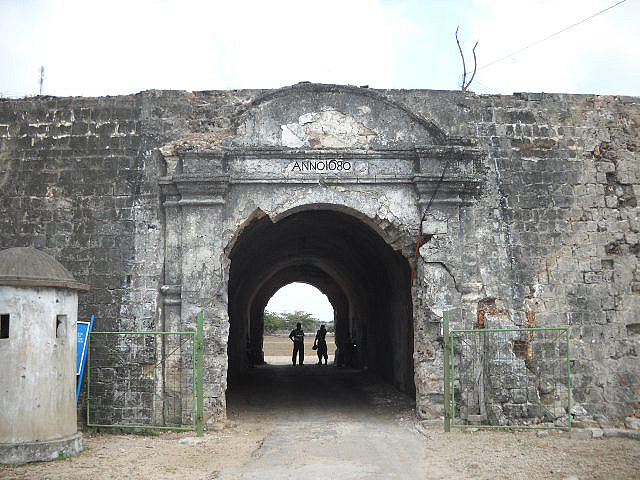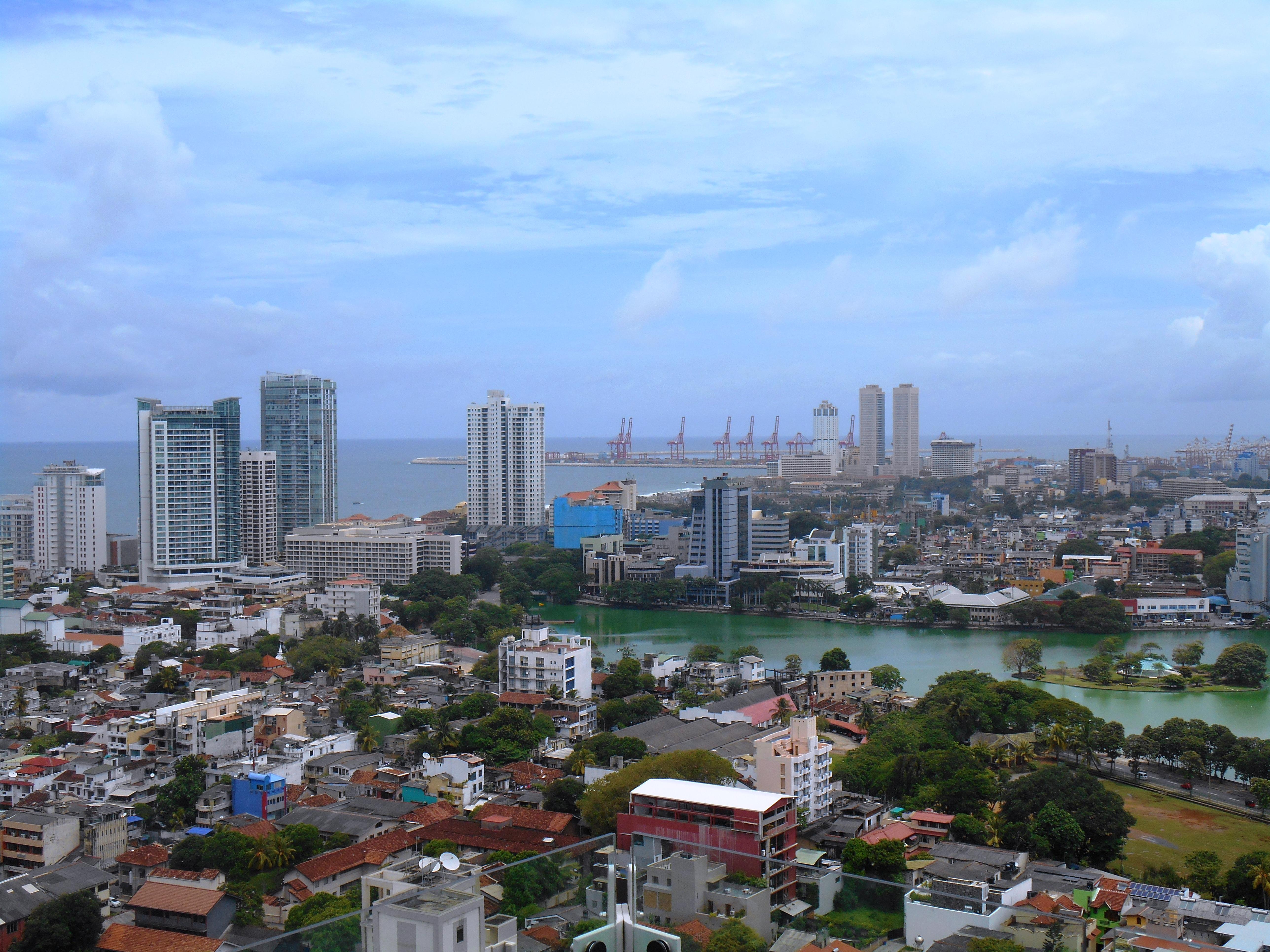|
Jaffnapatnam
Jaffna (, ) is the capital city of the Northern Province of Sri Lanka. It is the administrative headquarters of the Jaffna District located on a peninsula of the same name. With a population of 88,138 in 2012, Jaffna is Sri Lanka's 12th most populous city. Jaffna is approximately from Kandarodai which served as an emporium in the Jaffna peninsula from classical antiquity. Jaffna's suburb Nallur served as the capital of the four-century-long medieval Jaffna Kingdom. Prior to the Sri Lankan Civil War, it was Sri Lanka's second most populous city after Colombo. The 1980s insurgent uprising led to extensive damage, expulsion of part of the population, and military occupation. Since the end of civil war in 2009, refugees and internally displaced people began returning to homes, while government and private sector reconstruction started taking place. Historically, Jaffna has been a contested city. It was made into a colonial port town during the Portuguese occupation of the ... [...More Info...] [...Related Items...] OR: [Wikipedia] [Google] [Baidu] |
Portuguese Conquest Of The Jaffna Kingdom
The Portuguese conquest of the Jaffna kingdom occurred after Portuguese traders arrived at the rival Kotte Kingdom in the southwest of modern Sri Lanka in 1505. Many kings of Jaffna, such as Cankili I, initially confronted the Portuguese in their attempts at converting the locals to Roman Catholicism, but eventually made peace with them. By 1591, the king of Jaffna Ethirimanna Cinkam was installed by the Portuguese. Although he was nominally a client, he resisted missionary activities and helped the interior Kandyan kingdom in its quest to get military help from South India. Eventually, a usurper named Cankili II resisted Portuguese overlordship only to find himself ousted and hanged by Phillippe de Oliveira in 1619. The subsequent rule by the Portuguese saw the population convert to Roman Catholicism. The population also decreased due to excessive taxation, as most people fled the core areas of the former kingdom. Initial contact Portuguese traders reached Sri Lanka in 150 ... [...More Info...] [...Related Items...] OR: [Wikipedia] [Google] [Baidu] |
Jaffna Public Library
The Jaffna Library is the second largest public library in Sri Lanka located in Jaffna, Northern Province, Sri Lanka. It was considered the largest library in South Asia in the pre-1980s. Like many great libraries of the world, this library was destroyed by fire in the civil war. In this library, there were many ancient Tamil manuscripts, ancient copperplates, ancient medical records, Sinhalese ancient texts, British Sri Lankan history sources, 97000 books and other historical evidences were destroyed in the library fire in 1981. History In the 15th century, when the Tamilnadu region was invaded by Delhi, many ancient tamil manuscripts were brought to Jaffna by boat and stored. K. M Chellappa started a rental library in a small room with his 844 books and 30 magazines. Then he rented a room at Hospital Road Jaffna for Rs 25. This made the library popular. In 1935, the Jaffna Municipal Council transferred this library to the Municipal Hall and started storing many more books ... [...More Info...] [...Related Items...] OR: [Wikipedia] [Google] [Baidu] |
List Of Cities In Sri Lanka
The following is a list of Human settlement, settlements in Sri Lanka with a population over 50,000. Cities References External links {{Asia topic, List of cities in Cities in Sri Lanka, Lists of cities by country, Sri Lanka Lists of places in Sri Lanka, Cities Sri Lanka geography-related lists, Cities Lists of cities in Asia, Sri Lanka ... [...More Info...] [...Related Items...] OR: [Wikipedia] [Google] [Baidu] |
Indian Peace Keeping Force
Indian Peace Keeping Force (IPKF) was the Indian military contingent performing a peacekeeping operation in Sri Lanka between 1987 and 1990. It was formed under the mandate of the 1987 Indo-Sri Lankan Accord that aimed to end the Sri Lankan Civil War between Sri Lankan Tamil militant groups such as the Liberation Tigers of Tamil Eelam (LTTE) and the Sri Lankan military. The main task of the IPKF was to disarm the different militant groups, not just the LTTE. It was to be quickly followed by the formation of an Interim Administrative Council. These were the tasks as per the terms of the Indo-Sri Lankan Accord, signed at the behest of Indian Prime Minister Rajiv Gandhi. Given the escalation of the conflict in Sri Lanka, and with the pouring of refugees into India, Rajiv Gandhi took the decisive step to push this accord through. The IPKF was inducted into Sri Lanka on the request of Sri Lankan President J. R. Jayewardene under the terms of the Indo-Sri Lanka Accord. The force ... [...More Info...] [...Related Items...] OR: [Wikipedia] [Google] [Baidu] |
Liberation Tigers Of Tamil Eelam
The Liberation Tigers of Tamil Eelam (LTTE; ta, தமிழீழ விடுதலைப் புலிகள், translit=Tamiḻīḻa viṭutalaip pulikaḷ, si, දෙමළ ඊළාම් විමුක්ති කොටි, translit=Damiḷa īḷām vimukthi koṭi; also known as the Tamil Tigers) was a Tamil militant organization that was based in northeastern Sri Lanka. The LTTE fought to create an independent Tamil state called Tamil Eelam in the north-east of the island, due to the continuous discrimination and violent persecution against Sri Lankan Tamils by the Sinhalese dominated Sri Lankan Government.T. Sabaratnam, Pirapaharan, Volume 1, Introduction (2003)T. Sabaratnam, Pirapaharan, Volume 1, Chapter 1: Why didn't he hit back? (2003) Violent persecution erupted in the form of the 1956 and 1958 anti-Tamil pogroms which were carried out by majority Sinhalese mobs often with state support following the passing of the 1956 Sinhala Only Act. Founde ... [...More Info...] [...Related Items...] OR: [Wikipedia] [Google] [Baidu] |


